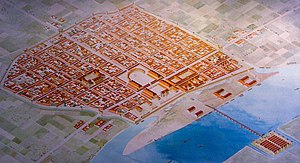
Back Ripuariese Franke Afrikaans Rheinfranken ALS Рыпуарскія франкі Byelorussian Рипуарски франки Bulgarian Franked ar Roen Breton Rheinfranken German Francos ripuarios Spanish Franko erripuariar Basque Ripuaariset frankit Finnish Francs rhénans French

The Rhineland or Ripuarian Franks were the Franks who established themselves in and around the formally Roman city of Cologne, on the Rhine river in what is now Germany. They are also often referred to using the Latin plurals Ribuarii, or Ripuarii. (A single Ripuarian would be a Ripuarius.)
Until the 1950s the Ribuarii were seen as the easternmost of two distinct "sub tribes" of the Franks who ruled two large neighbouring regions in northern Gaul after the collapse of the Roman empire in the fifth century AD. According to this tradition, which continues to be influential, the Ribuarii ruled not just the Rhineland area near Cologne, but all or most of what would later become the Austrasian or Lotharingian region – stretching from present day southern Belgium to the Rhine in present day Germany and the Netherlands. Their western counterparts in this scenario are the Salii, or "Salian Franks", who took control of what is now northern France. This traditional vision of two very large tribes of Franks with large territories is based mainly on two 7th century Frankish legal codes, the Lex Ripuaria and Lex Salica. These laws had different geographical jurisdictions, and it was believed that the boundary between them was in the Ardennes and Silva Carbonaria in what is now southern Belgium.
Since the 1950s the term Ripuarian is no longer seen as having its origins as a tribal name, even if it eventually became the name for a specific population based in Cologne. There has also been ongoing scholarly debate about when and how the term Ripuarian was, if ever, applied to the much larger Austrasian region as opposed to the much smaller region around Cologne. The Lex Ripuaria itself is now seen mainly as a law code of the Cologne Rhineland covering such neighbouring towns as Bonn, Zülpich, Jülich and Neuss.